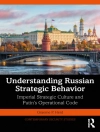Appeasement is a controversial strategy of conflict management and resolution in world politics. Its reputation is sullied by foreign policy failures ending in war or defeat in which the appeasing state suffers diplomatic and military losses by making costly concessions to other states. Britain’s appeasement policies toward Germany, Italy, and Japan in the 1930s are perhaps the most notorious examples of the patterns of failure associated with this strategy. Is appeasement’s reputation deserved or is this strategy simply misunderstood and perhaps improperly applied? Role theory offers a general theoretical solution to the appeasement puzzle that addresses these questions, and the answers should be interesting to political scientists, historians, students, and practitioners of cooperation and conflict strategies in world politics. As a social-psychological theory of human behavior, role theory has the capacity to unite the insights of various existing theories of agency and structure in the domain of world politics. Demonstrating this claim is the methodological aim in this book and its main contribution to breaking new ground in international relations theory.
Stephen G. Walker
Role Theory and the Cognitive Architecture of British Appeasement Decisions [PDF ebook]
Symbolic and Strategic Interaction in World Politics
Role Theory and the Cognitive Architecture of British Appeasement Decisions [PDF ebook]
Symbolic and Strategic Interaction in World Politics
Купите эту электронную книгу и получите еще одну БЕСПЛАТНО!
язык английский ● Формат PDF ● страницы 262 ● ISBN 9781135055745 ● издатель Taylor and Francis ● опубликованный 2013 ● Загружаемые 6 раз ● валюта EUR ● Код товара 2822700 ● Защита от копирования Adobe DRM
Требуется устройство для чтения электронных книг с поддержкой DRM












